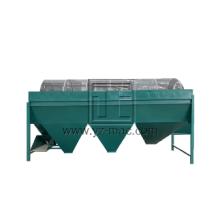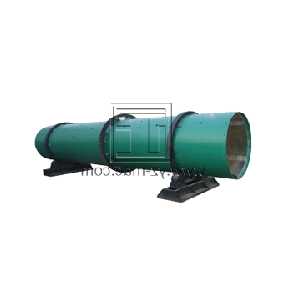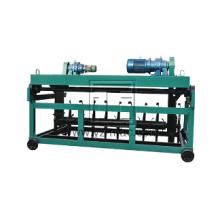Industrial composter
An industrial composter is a robust and efficient machine designed to handle large volumes of organic waste and convert it into valuable compost. With advanced features and capabilities, industrial composters are ideal for industries, municipalities, and other entities dealing with significant amounts of organic waste.
Benefits of Industrial Composters:
Large-Scale Waste Processing: Industrial composters are specifically designed to handle substantial quantities of organic waste, making them ideal for industries and municipalities. They enable efficient processing and composting of high volumes of organic materials, reducing waste disposal costs and promoting sustainable waste management practices.
Rapid Composting: Industrial composters utilize advanced technology and controlled environments to accelerate the composting process. With features such as automated mixing, aeration systems, and temperature control, these machines optimize conditions for microbial activity, resulting in faster decomposition and shorter composting cycles.
High-Quality Compost Production: The controlled environment and efficient processing of organic waste in industrial composters lead to the production of high-quality compost. The compost is rich in nutrients, free from contaminants, and undergoes rigorous quality control measures to ensure compliance with industry standards. This high-quality compost can be used in various applications, including agriculture, landscaping, horticulture, and soil remediation.
Resource Recovery and Environmental Sustainability: Industrial composters contribute to resource recovery and environmental sustainability by diverting organic waste from landfills. Instead of ending up as a burden on the environment, organic waste is transformed into a valuable resource through composting. The resulting compost can be used to enrich soils, improve plant growth, and reduce reliance on chemical fertilizers.
Working Principles of Industrial Composters:
Industrial composters employ a combination of mechanical, biological, and thermal processes to convert organic waste into compost. The key working principles include:
Mixing and Shredding: Industrial composters incorporate mechanisms for efficient mixing and shredding of organic waste materials. This ensures proper blending of different waste types and breaks down large particles into smaller fragments, promoting uniform decomposition and optimal microbial activity.
Aeration and Moisture Control: To facilitate aerobic composting, industrial composters incorporate advanced aeration and moisture control systems. These systems ensure adequate oxygen supply and maintain optimal moisture levels, creating favorable conditions for microbial decomposition.
Temperature Regulation: Industrial composters employ temperature control mechanisms to regulate and maintain the composting process within the ideal temperature range. This helps optimize microbial activity and accelerates the decomposition of organic materials.
Monitoring and Automation: Industrial composters are equipped with monitoring and automation systems to ensure proper control and management of the composting process. Sensors and control panels monitor key parameters such as temperature, moisture levels, and oxygen levels, enabling real-time adjustments for optimal composting conditions.
Applications of Industrial Composters:
Food and Beverage Industry: Industrial composters are widely used in food processing plants, breweries, and restaurants to manage organic waste such as food scraps, vegetable trimmings, and expired products. These machines efficiently process large volumes of organic waste, reducing disposal costs and promoting sustainable waste management practices.
Municipal Waste Management: Industrial composters play a vital role in municipal waste management systems. They enable municipalities to compost organic waste collected from households, schools, and commercial establishments, diverting it from landfills and producing compost for various applications.
Agriculture and Farming: Industrial composters are employed in large-scale agricultural operations to convert crop residues, manure, and other agricultural waste into nutrient-rich compost. This compost is used to improve soil fertility, enhance crop yields, and reduce the reliance on chemical fertilizers.
Landscaping and Horticulture: Industrial composters produce high-quality compost for landscaping and horticultural applications. The compost is used as a soil amendment, potting mix ingredient, or topdressing material to improve soil health, enhance plant growth, and promote sustainable landscaping practices.







